A nation must think before it acts.
Announcing the Eurasia Program at FPRI
With the 2014 Russian annexation of Crimea, Eastern Europe and Eurasia have re-emerged as a major focal point for global competition. The redrawing of borders by military force and the continued stoking of nationalism, irredentism and revanchism in Eurasia could well erupt into large-scale violence. Unless effectively countered, these developments threaten to dismantle the post-Cold War order of Europe/Eurasia.
FPRI’s new Eurasia Program will closely study trends in the “Eurasian Heartland” and their implications for the West. As sketched out by Halford Mackinder, this strategic heartland is the vast space between central and northern Europe, the Middle East, and eastern Asia.
Following FPRI’s unique approach of studying global affairs from geographical, historical, and cultural perspectives, the new Eurasia Program will analyze these new challenges comprehensively, including our continued tracking of the ebb and flow of democratization in the post-communist states. Our Baltic Initiative, launched in January, and our upcoming Black Sea Initiative add significant new components to our already substantially increased coverage of the geopolitical, military, economic, energy, and cyber-technology issues that are key to understanding the new dynamics of the region.

Eurasia Program Staff and Scholars
Leadership Team
 Ambassador Adrian A. Basora is FPRI Senior Fellow and co-Director of its Eurasia Program. He was the last U.S. Ambassador to Czechoslovakia, and then the first to the Czech Republic, after witnessing Czechoslovakia’s peaceful “Velvet Divorce.” He spearheaded early U.S. support for democracy and market economics in the Czech and Slovak republics. Immediately prior to that, he was Director for European Affairs at the National Security Council as the Iron Curtain fell, and he participated in the design of U.S. policies and programs to encourage democratic transitions in Central and Eastern Europe. Ambassador Basora holds an MPIA from Princeton University.
Ambassador Adrian A. Basora is FPRI Senior Fellow and co-Director of its Eurasia Program. He was the last U.S. Ambassador to Czechoslovakia, and then the first to the Czech Republic, after witnessing Czechoslovakia’s peaceful “Velvet Divorce.” He spearheaded early U.S. support for democracy and market economics in the Czech and Slovak republics. Immediately prior to that, he was Director for European Affairs at the National Security Council as the Iron Curtain fell, and he participated in the design of U.S. policies and programs to encourage democratic transitions in Central and Eastern Europe. Ambassador Basora holds an MPIA from Princeton University.



Affiliated Scholars

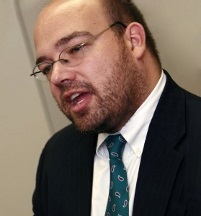

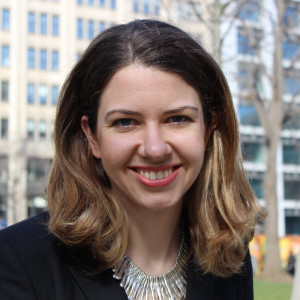
 Simon Hoellerbauer (Associate Scholar) is a recent graduate of Kenyon College with a BA in Political Science and Modern Languages (Spanish and Russian). His research interests include democratic transitions, especially in Latin America and in the former Soviet Bloc, and the role democracy plays in how countries carry out their foreign policy.
Simon Hoellerbauer (Associate Scholar) is a recent graduate of Kenyon College with a BA in Political Science and Modern Languages (Spanish and Russian). His research interests include democratic transitions, especially in Latin America and in the former Soviet Bloc, and the role democracy plays in how countries carry out their foreign policy.

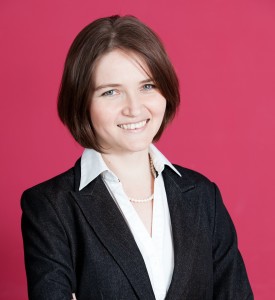
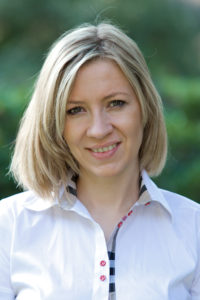
 Mitchell A. Orenstein (Senior Fellow) is Professor of Central and East European politics in the Slavic department of the University of Pennsylvania. Professor Orenstein’s published work has explored the political economy of transition in Central and Eastern Europe, pension privatization worldwide, and the role of policy paradigms in economic reform. His research lies at the intersection of comparative politics, international political economy, and global public policy, employing a problem-driven research approach based on asking policy-relevant questions and answering them through carefully designed in-depth field research. He received his Ph.D. in Political Science from Yale University.
Mitchell A. Orenstein (Senior Fellow) is Professor of Central and East European politics in the Slavic department of the University of Pennsylvania. Professor Orenstein’s published work has explored the political economy of transition in Central and Eastern Europe, pension privatization worldwide, and the role of policy paradigms in economic reform. His research lies at the intersection of comparative politics, international political economy, and global public policy, employing a problem-driven research approach based on asking policy-relevant questions and answering them through carefully designed in-depth field research. He received his Ph.D. in Political Science from Yale University.
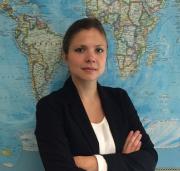
 Tamari Ramishvili (Research Associate) is currently working towards her MA in Public Policy at American University, with a concentration in International Development. She holds a dual BA from Rutgers University in Philosophy and Political Science, with a minor in National Security, CIA, and Counterintelligence. Ms. Ramishvili is a regular contributor to FPRI’s Baltic Bulletin and her areas of research focus include Russia, Black Sea and the Baltic regions.
Tamari Ramishvili (Research Associate) is currently working towards her MA in Public Policy at American University, with a concentration in International Development. She holds a dual BA from Rutgers University in Philosophy and Political Science, with a minor in National Security, CIA, and Counterintelligence. Ms. Ramishvili is a regular contributor to FPRI’s Baltic Bulletin and her areas of research focus include Russia, Black Sea and the Baltic regions.
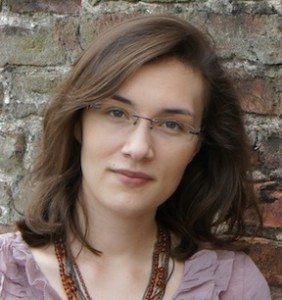

Selected Recent Publications
- How, Why, and When Russia Will Deploy Little Green Men – and Why the US Cannot – FPRI E-Notes – John R. Haines – March, 2016
- What Georgia Needs to Do to Join the West – FPRI E-Notes – Luis Navarro – March, 2016
- The Problem Neither Obama Nor Bush Could Solve – The National Interest – Nikolas K. Gvosdev – February, 2016
- “The Rail Baltica” Project: True European Interconnectedness? – Geopoliticus: the FPRI Blog – Tamari Ramishvili – February 29, 2016
- Azerbaijan’s Best and Worst Moments of 2015: The European Games, Fake British tourists, Currency Devaluations, and More – Geopoliticus: the FPRI Blog – Arzu Geybullayeva – February 3, 2016
- Latvia’s New-Old Government – FPRI Baltic Bulletin – Daunis Auers – February, 2016
- Putin vs. Putin: Why Russia Was Its Own Worst Enemy in 2015 – World Politics Review –Nikolas K. Gvosdev – February, 2016
- Latvia’s Citizenship Law — A Chink in Latvian Armor – FPRI Baltic Bulletin – Eriks Selga – February, 2016
- Europe’s Autocracy Problem: Polish Democracy’s Final Days? – Foreign Affairs –Mitchell Orenstein – January, 2016
- At the Dawn of a New Era of Sanctions: Russian-Ukrainian Crisis and Sanctions – Orbis –Viljar Veebel, Raul Markus – January, 2016
- A Method to the Madness: The Logic of Russia’s Syrian Counterinsurgency Strategy – FPRI E-Notes – John R. Haines – January, 2016
- Estonia’s D5 Presidency – Geopoliticus: the FPRI Blog – Tamari Ramishvili – January 11, 2016
- France and Germany Must Work With The US On Baltic Security – FPRI Baltic Bulletin – Eoin McNamara – January, 2016
- Little Green Men in the Baltic States Are an Article 5 Event – FPRI Baltic Bulletin – Lukas Milevski -January, 2016
- Baltic Nations and the Continuing EU Refugee Crisis – Geopoliticus: the FPRI Blog – Tamari Ramishvili – January 4, 2016
- Why the Baltics? – FPRI Baltic Bulletin – Chris Miller – January, 2016
- The Best of FPRI’s Essays on Democratic Transitions – FPRI 60th Anniversary Collections, E-Book – Edited By: Maia Otarashvili – July, 2015




